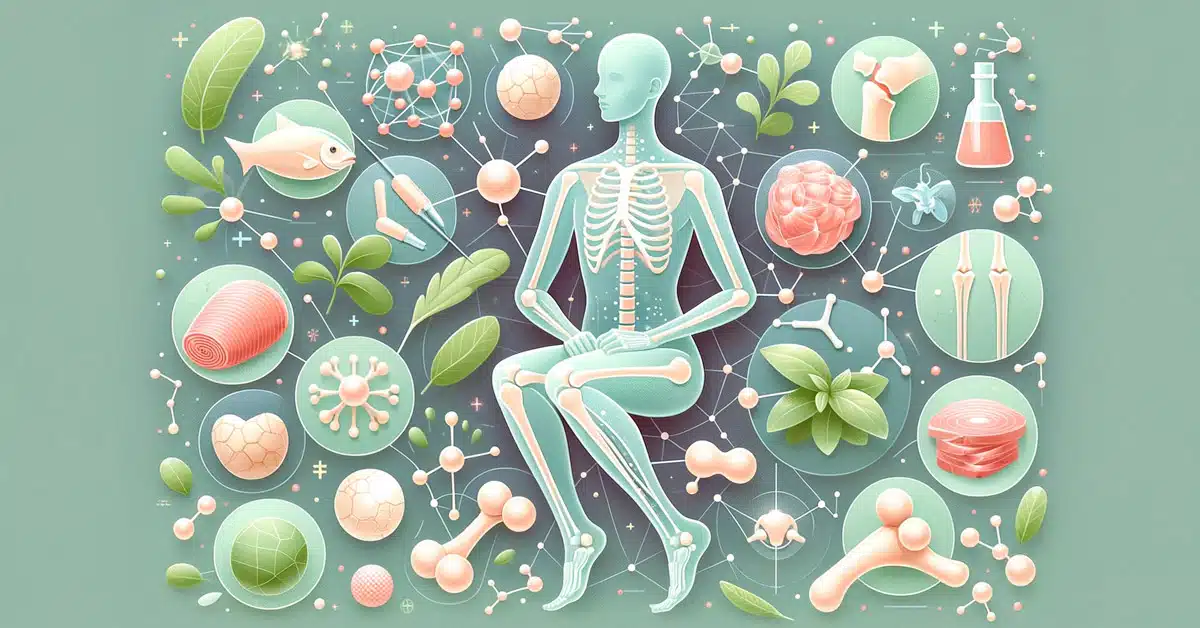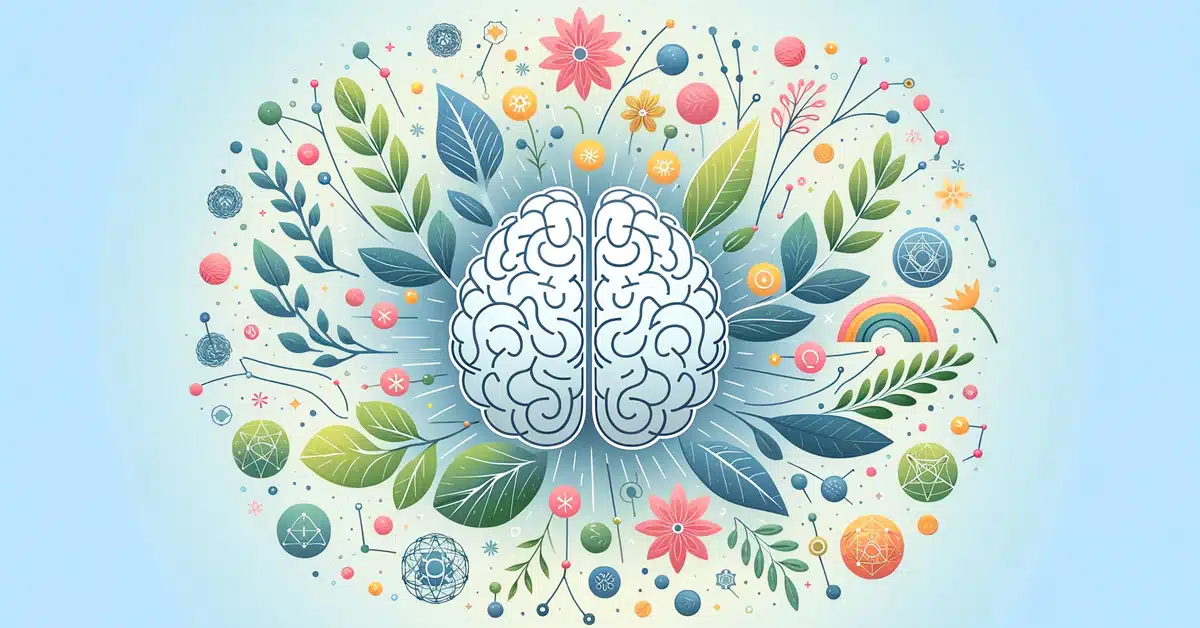Heard about the benefits of collagen supplements? We’ll answer collagen FAQs you never knew you had! Join us: let’s learn all about collagen.

Wondering about the benefits of collagen supplements? You’re in the right place!
Most of us know at least a little bit about collagen—it’s been rising in popularity as a supplement since the early 2000s. Though, did you know collagen has been part of human diets for thousands of years? When ancient people consumed bone broth, they probably weren’t thinking about the benefits of collagen peptides, but they definitely were ingesting them.
Actually, you don’t need to go too far back in human history to see evidence of the medicinal use of collagen. As early as 2000 years ago, collagen made from donkey skin was used in traditional Chinese medicine. To this day, donkey skin gelatin is an expensive and oft-given gift in China.
When a food has a long history like that, there’s often a lot of goodness to unravel. In today’s post, we’re going to take a look at some collagen FAQs, many of which may surprise you! Here’s what we’ll cover:
- What is Collagen – Animal vs Plant?
- What Are The Benefits of Taking Collagen?
- What Diseases Does Collagen Help With?
- What About Collagen and Clotting?
- What Is The Best Collagen Supplement?
- What Are The Pros and Cons of Taking Collagen Supplements?
- What’s The Link Between Collagen & Menopause?
- How Does Collagen Help Gut Health?
1. What is Collagen – Animal vs Plant?
When we’re talking about collagen, know that there are two main categories:
- Animal Collagen
- “Plant” Collagen
What is Animal Collagen?
Animal collagen is a popular supplement, mainly sourced from cows, fish, or chickens. It’s rich in Type I, II, and III collagen, which closely match the types found in the human body. This makes it highly effective for various health needs.
Collagen is literally one of the main building blocks in the human body. People use animal collagen to enhance skin quality, and support joint and bone health, among other benefits. It stands out for its versatility and the significant role it plays in maintaining and improving overall well-being.
What is Plant Collagen?
Plant-based collagen boosters mimic real collagen by promoting your body’s collagen production with plant extracts and amino acids. They don’t boost collagen levels directly but rather support your body in the creation of its own collagen.
They’re usually made through fermentation with genetically modified bacteria or yeast. Ideal for vegans and vegetarians, these supplements offer a way to enjoy collagen’s benefits without animal products.
Why Choose Plant Collagen?
Plant-based collagen builders can be beneficial for people who can’t or choose not to use animal collagen. They provide the necessary amino acids and nutrients to support the body’s own collagen synthesis.
For a deep dive into the world of collagen, take a look at this episode of Whole Body Health, hosted by FLCCC clinical advisor Dr. JP Saleeby. He’s joined by another of our clinical advisors, Dr. Kristina Carman, to look at the benefits of collagen from all angles.
2. What Are The Benefits of Taking Collagen?
The journey of collagen from an obscure ingredient to a key health supplement is impressive. Initially explored in the early 20th century for skin and bone benefits, its breakthrough came with advancements in processing.
These days, people are able to scoop collagen powder into their morning coffee. So, what are people getting out of it? Quite a bit:
- Skin Health: May improve skin elasticity, reduce wrinkles, and promote hydration.
- Joint Health: Helps in maintaining the integrity of cartilage, which is crucial for joint flexibility and health.
- Bone Strength: Plays a role in bone density and strength.
- Skin Aging: Helps in reducing signs of aging like wrinkles and dryness.
- Muscle Mass and Strength: Collagen contains amino acids necessary for muscle repair and growth.
And there are even more benefits of collagen, especially in supporting certain health conditions.
3. What Diseases Does Collagen Help With?
Though not exactly a replacement for medical treatment, collagen may be beneficial in several common health conditions:
- Osteoarthritis: Can help reduce joint pain and degeneration.
- Osteoporosis: Supports bone health and density.
- Cardiovascular Health: Collagen provides structure to blood vessels and may help in maintaining their elasticity and strength.
- Skin Conditions: Collagen plays a crucial role in maintaining skin elasticity and hydration, potentially benefiting skin conditions characterized by dryness, loss of elasticity, or slow wound healing.
4. What About Collagen and Clotting?
FLCCC has devoted a huge amount of time to the study of long COVID and long vax. Recently, the topic of blood clotting and collagen came up in our weekly webinar. Regular guest Scott Marsland spoke about a clinical observation he made that may link collagen to excess blood clotting in long COVID/vax patients, particularly those with perforation in the gut lining.
Long story short, we are continuing to observe if clotting emerges as a clear side effect of ingesting collagen powder. As of early 2024 (the time we published this article), there is not enough evidence to suggest a correlation between collagen supplements and blood clots.
For patients suffering from long COVID and long vax, there’s no harm in discussing collagen (or any supplements in your regimen) with your doctor. For the average person curious about the benefits of collagen, stick around! There are a lot more facts about collagen to inspire you.
👉 Learn more: Collagen and Blood Clotting
5. What Is the Best Collagen Supplement?
There are many types of collagen, including those with vitamins and other compounds (like hyaluronic acid) added to the mix. So which one is best?
As with any new supplement, you may consider talking with your healthcare provider to see what they recommend. Generally, when choosing a collagen supplement, you’ll want to consider:
- Source: Bovine (cow), marine (fish), or chicken collagen, depending on individual dietary preferences or allergies.
- Type: Type I and III for skin and bones; Type II for joint health.
- Quality: Look for hydrolyzed collagen (sometimes called “enhanced collagen), which is easier to absorb, and products with minimal additives.
What About Bone Broth?
Bone broth is exactly what it sounds like. In fact, bone broth has been a natural source of collagen that people depended on for centuries.
It’s made by simmering animal bones and connective tissue. It provides collagen along with other nutrients like minerals. However, the collagen concentration can vary widely depending on the preparation.

6. What Are The Pros and Cons of Taking Collagen Supplements?
For those of us who try to take our health seriously, it’s not uncommon to be taking a fistful of supplements every day. Naturally, if you’re going to add a couple of scoops of collagen into the mix, you’ll want to look at the pros and cons.
Pros:
- Supports skin, bone, and joint health.
- May improve gut health and help in healing the gut lining.
- Can strengthen hair and nails.
Cons:
- Some people may experience mild digestive issues.
- Allergic reactions in case of allergies to the source material.
- Not all supplements have the same quality or concentration of collagen.
7. What’s The Link Between Collagen & Menopause?
Menopause leads to less collagen production, affecting skin firmness and bone strength.
This decrease can change how your skin and bones feel, making skin less supple and bones less robust. Essentially, your body starts producing less of the protein crucial for keeping skin tight and bones strong.
However, collagen supplements, particularly Types I and III, can help counteract these changes. They’re important for maintaining the health of your skin and bones. Adding collagen to your routine could be a straightforward way for peri/postmenopausal women to support their overall health.

8. How Does Collagen Help Gut Health?
Collagen and gut health are amazingly intertwined. Part of that is because our gut is literally made of collagen. Let’s see how collagen can positively impact our guts.
- Gut and Intestinal Lining Support
- Inflammatory Bowel Disease (IBD)
- Irritable Bowel Syndrome (IBS)
- Gut Dysbiosis
Gut and Intestinal Lining Support
Collagen helps make the gut lining stronger. For some people, gaps can emerge in the walls of the intestines, letting bacteria and toxins get into the blood.
Collagen has amino acids like glycine and proline, important for fixing intestinal walls and keeping the gut healthy.
Inflammatory Bowel Disease (IBD)
IBD includes conditions like Crohn’s disease and ulcerative colitis, causing long-term inflammation in the gut.
Collagen might help lower this inflammation because of its anti-inflammatory effects and help repair the damaged gut lining.
Irritable Bowel Syndrome (IBS)
IBS affects the large intestine, causing cramping, pain, bloating, gas, and changes in bowel movements.
Collagen isn’t a cure for IBS, but it might help make the gut lining better and lower inflammation, easing symptoms.
Gut Dysbiosis
Dysbiosis is when the gut’s good and bad bacteria are out of balance, causing digestive issues and affecting health.
Collagen, especially from bone broth, not only gives you collagen but also other helpful nutrients for a healthy gut.
Wrapping Up
Collagen’s journey from ancient nutrition to modern wellness essential highlights its enduring appeal and versatile benefits. Whether it’s for boosting skin health, strengthening bones, or supporting gut health, collagen offers something for almost everyone.
If you’re looking for more healthy eating advice, check out Eat Well: our guide to healthy eating. We’ve also got dozens of articles and infographics all about health in our tools & guides section. Finally, don’t forget to sign up for FLCCC’s Forums and join the discussion about collagen there!





